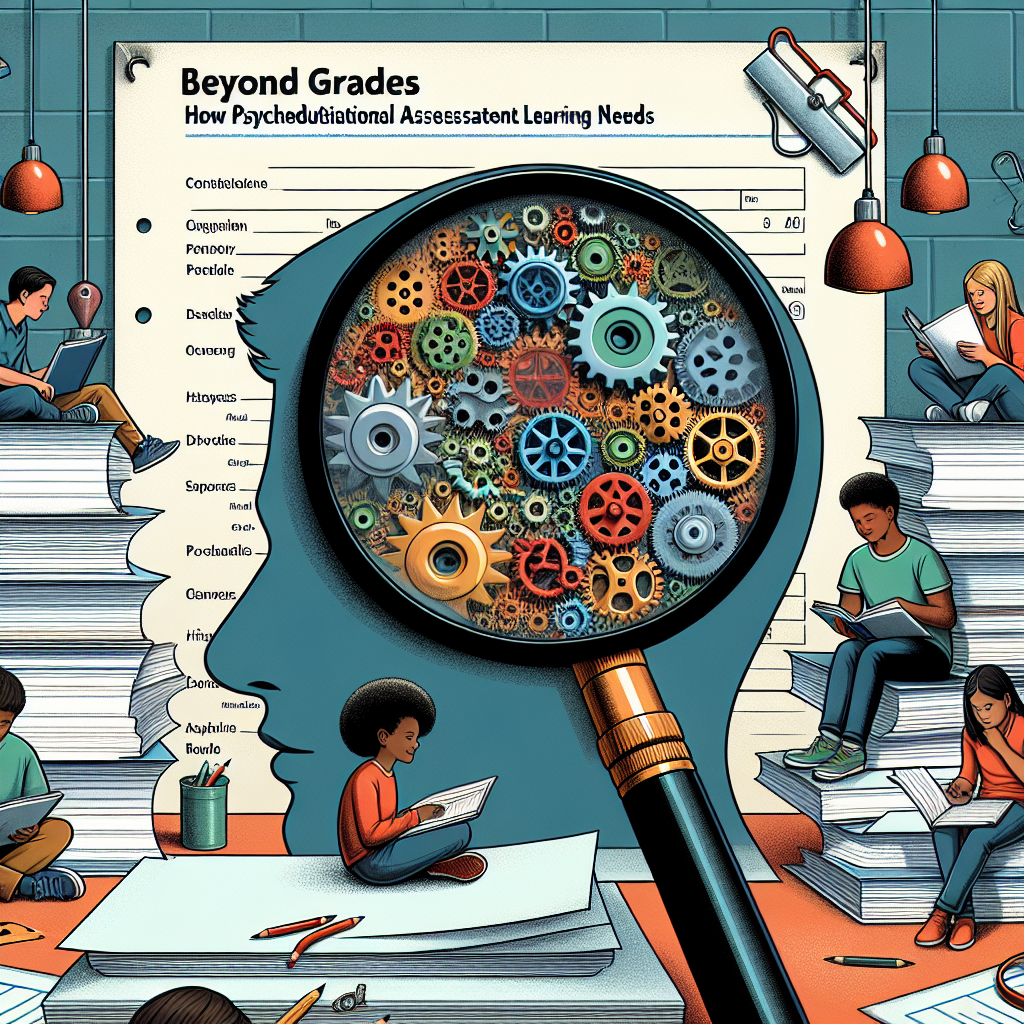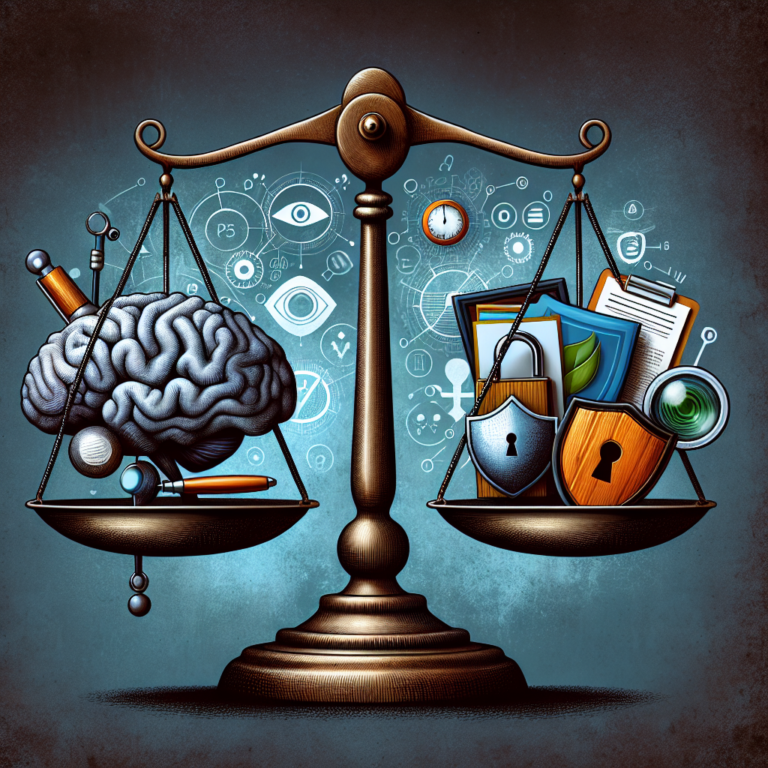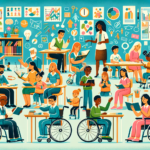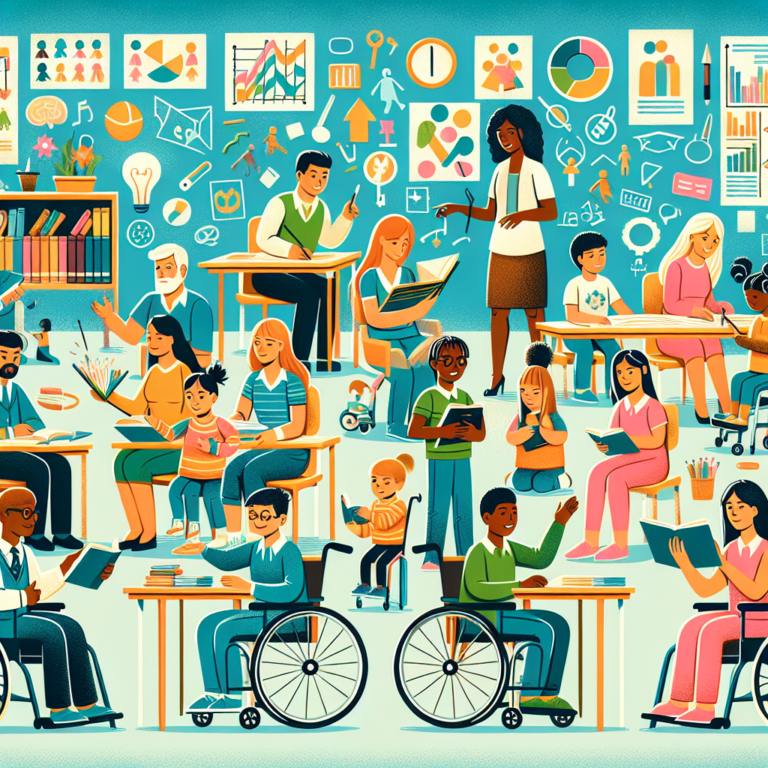
Introduction
In a world increasingly driven by standardized metrics, grades often overshadow the true potential of a child’s mind. They serve as a measure of academic achievement, but do they truly capture a student’s learning needs? This question becomes particularly relevant in light of the complex backdrop of different learning styles and the unique challenges that many students face. Beyond Grades: How Psychoeducational Assessments Reveal Hidden Learning Needs invites us to look beyond mere numbers to uncover the intricate tapestry of a child’s cognitive, emotional, and social capabilities.
Psychoeducational assessments act as a powerful lens through which educators and parents can identify specific learning needs that grades alone do not reveal. By breaking down the barriers of conventional evaluation methods, these assessments illuminate the path for more personalized educational strategies, fostering an environment where every child has the opportunity to succeed.
Understanding Psychoeducational Assessments
What Are Psychoeducational Assessments?
At their core, psychoeducational assessments are comprehensive evaluations that combine psychological testing with educational analysis. They assess various aspects of a student’s thinking processes, learning styles, and emotional health. These assessments can identify learning disabilities, giftedness, and social-emotional difficulties that can affect a child’s academic performance and overall well-being.
The Importance of Early Identification
Identifying learning needs early can significantly alter a child’s educational trajectory. Children who struggle without receiving the necessary support face an uphill battle that affects their confidence, self-esteem, and overall academic performance. Research shows that early intervention leads to better long-term outcomes. Through the lens of Beyond Grades: How Psychoeducational Assessments Reveal Hidden Learning Needs, we gain insights into how intuitive approaches can transform lives.
The Mechanics of Psychoeducational Assessments
Components of the Evaluation
- Intellectual Testing: Measures cognitive abilities and IQ.
- Academic Achievement Tests: Evaluates proficiency in reading, writing, and mathematics.
- Behavioral Assessments: Screens for emotional and behavioral issues.
- Classroom Observations: Offers insights into the child’s interaction and engagement within a learning environment.
The Process
The assessment process typically involves several steps, beginning with an initial interview and culminating in a comprehensive report that guides future educational strategies. This process ensures that each child is understood within the context of their unique needs rather than only standardized expectations.
Case Studies: Real-World Applications
Case Study 1: Jason’s Journey
Background: Jason, a 10-year-old boy, was consistently underperforming in school despite being bright and curious. His grades reflected confusion and frustration, creating a negative cycle that affected his self-esteem.
Assessment Results: A psychoeducational assessment revealed that Jason had a specific learning disability in reading comprehension, paired with strong verbal skills.
Outcome: Armed with this knowledge, educators implemented targeted interventions, enabling Jason to engage with more complex texts and enhancing his learning experience. Over time, his grades improved significantly, but more importantly, so did his enthusiasm for learning.
Case Study 2: Sophia’s Strengths
Background: Sophia, a gifted student in math, faced challenges in social interactions and emotional regulation. Although her grades were high, she struggled to maintain friendships and often felt isolated.
Assessment Results: Psychoeducational testing identified a giftedness in mathematical reasoning along with social emotional difficulties, which were previously masked by her academic performance.
Outcome: With tailored activities that nourished her mathematical skills while also addressing her social-emotional needs, Sophia thrived, both academically and personally. Beyond Grades: How Psychoeducational Assessments Reveal Hidden Learning Needs helped uncover her multifaceted profile, paving the way for a more holistic educational approach.
The Role of Educators and Parents
Collaborative Efforts for Growth
To maximize the benefits of psychoeducational assessments, collaboration between educators, parents, and mental health professionals is vital. When these stakeholders work together, they can create tailored interventions that address a child’s unique strengths and weaknesses. Such teamwork exemplifies the essence of Beyond Grades: How Psychoeducational Assessments Reveal Hidden Learning Needs.
Resources for Parents
- Understanding the Reports: Parents should take time to comprehend their child’s assessment results. Consulting with educational psychologists can help in interpreting technical jargon.
- Engaging in the Process: Maintaining continuous communication with teachers about interventions and modifications based on assessment results ensures alignment in addressing learning needs.
- Fostering a Growth Mindset: Encourage the belief that abilities can be developed through dedication and hard work, reinforcing the idea that learning is a journey.
Embracing Holistic Education
Moving Beyond Traditional Metrics
Educational systems need to evolve from an over-reliance on grades to a more holistic approach that considers emotional, social, and cognitive development. Beyond Grades: How Psychoeducational Assessments Reveal Hidden Learning Needs emphasizes that understanding a child’s full spectrum of capabilities is integral.
Innovative Approaches
- Personalized Learning Plans: These plans cater to individual strengths and weaknesses, allowing for effective pacing and tailored content.
- Emotional Learning Programs: Introducing these can foster resilience and interpersonal skills, complementing traditional academic curriculums.
- Regular Check-Ins: Evaluating progress through regular assessments ensures that approaches remain relevant and that shifts in learning needs are swiftly recognized.
Chart: Benefits of Psychoeducational Assessments
| Benefit | Description |
|---|---|
| Early Identification | Recognizes learning challenges promptly |
| Tailored Interventions | Customizes strategies for individual needs |
| Strength-Based Approach | Focuses on a child’s strengths alongside weaknesses |
| Improved Academic Outcomes | Leads to better grades and engagement |
| Enhanced Emotional Well-Being | Supports self-esteem and social skills |
Conclusion
In the quest for educational reform, we must remember the essence of what it means to learn. The narrative should not merely focus on scores and rankings, but rather embrace the complexity of each child’s journey. Beyond Grades: How Psychoeducational Assessments Reveal Hidden Learning Needs prepares us to appreciate the multifarious facets of learning. With each assessment, we uncover a unique story that, when nurtured, fosters growth, resilience, and empowerment.
As we piece together the puzzle of education, let us commit to viewing our children through a lens that captures their full potential, ensuring that learning is a positive, enriching experience.
FAQs
1. What is a psychoeducational assessment?
A psychoeducational assessment is a comprehensive evaluation combining psychological testing and educational analysis to identify a student’s learning strengths and needs.
2. Why are psychoeducational assessments important?
These assessments help identify specific learning disabilities, giftedness, and emotional challenges, allowing for tailored educational strategies.
3. How are psychoeducational assessments conducted?
They typically involve interviews, standardized testing, observations, and collaboration with educators to gather a comprehensive view of a child’s abilities.
4. What can parents do if their child is struggling academically?
Parents should consider seeking a psychoeducational assessment, ensuring they understand the results, then work closely with educators to implement necessary interventions.
5. How can schools implement the findings from assessments?
Schools can use findings to create personalized learning plans, conduct regular progress check-ins, and develop programs that support emotional and social learning for students.
By adopting the insights from Beyond Grades: How Psychoeducational Assessments Reveal Hidden Learning Needs, educators and parents can foster more inclusive and responsive educational environments for all students.















